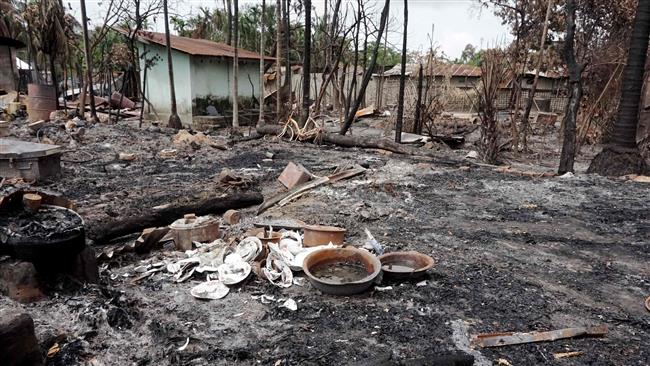UN rights council to hold special session on Myanmar's crimes against Rohingya
The United Nations Human Rights Council is expected to hold a special session on killings, rapes and other crimes committed by Myanmar’s security forces against persecuted Rohingya Muslims in Rakhine state.
A senior UN source told media outlets on Monday that "there will be a special session on December 5."
Rolando Gomez, the council’s spokesman, could not confirm the date but said, "There are moves to convene a special session to address the human rights situation in the country."
In all, the UN rights council has held 26 sessions since its inception in 2006.
A special session may be held at the request of at least a third of the member states, or 16 countries. Bangladesh and other Muslim-majority countries were expected to back the call.
Meanwhile, Amnesty International and other activist groups, in an open letter sent to the 47-member council last week, said that a special session was "imperative to launch decisive action and ensure international scrutiny and monitoring of the situation."

In March, the Council set up a fact-finding team. The investigators reported after their first mission to Bangladesh last month that Rohingya Muslim refugees fleeing Myanmar had testified that a "consistent, methodical pattern of killings, torture, rape and arson is taking place."
More than 600,000 Rohingya Muslims have so far fled predominantly-Buddhist Myanmar to neighboring Bangladesh since August 25, when the crackdown on the Rohingya intensified in Rakhine state.
During the past three months, government troops, apart from raping, have been committing killings, making arbitrary arrests, and carrying out mass arson of houses in hundreds of predominantly-Rohingya villages in the restive state.
The UN has already described the Rohingya as the most persecuted community in the world, calling the situation in Rakhine similar to “a textbook example of ethnic cleansing.”
Rights groups say Myanmar's treatment of the Rohingya constitutes crime against humanity.
Prominent human rights groups have recently called on international agencies to monitor the safe return of Rohingya Muslims to Myanmar.
Estimates as to how many Muslims have been killed vary from 1,000 to 3,000.
At the root of the crisis is the refusal by Myanmar to grant citizenship to the Muslim minority community.
Settlement expansion proves Israel cannot be trusted for any peace deal: Hamas
VIDEO | Press TV's news headlines
Trump 2.0 and its possible implications on Ukraine war, NATO and Europe
Israeli commander exposed troops to resistance fire to steal plasma screens
Iran lifts ban on WhatsApp, Google Play
VIDEO | Palestinian childhood under threat
Yemeni forces strike Israeli military site with hypersonic missile
Yemeni missiles alter US, Israel’s calculations: Iranian FM











 This makes it easy to access the Press TV website
This makes it easy to access the Press TV website